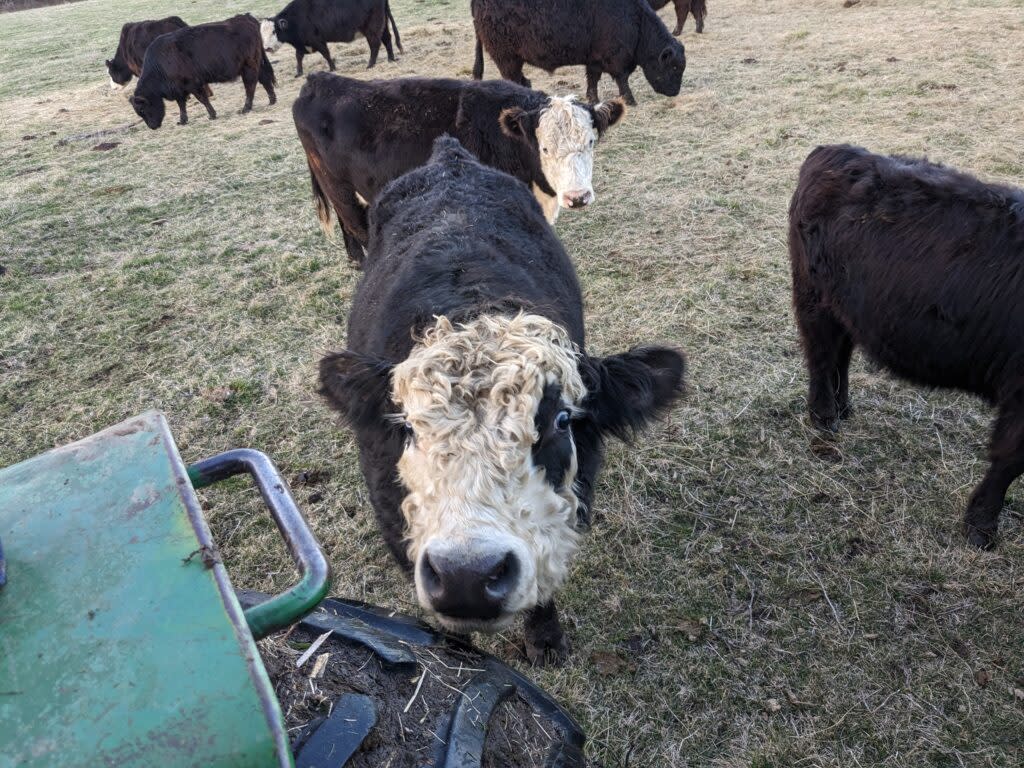Mann and Davids diverge on U.S. House committee’s agriculture, food spending legislation

U.S. Rep. Tracey Mann, R-Kansas, and U.S. Sharice Davids, D-Kansas, both of the House agriculture committee, took rival positions on the new farm bill legislation shaping U.S. food and agriculture policy for the next five years. (Tim Carpenter/Kansas Reflector)
TOPEKA — Kansas’ two members of the U.S. House agriculture committee disagreed Friday on overall merit of a proposed farm bill with Republican Tracey Mann lauding it as a fiscally conservative safety net for farmers and Democrat Sharice Davids faulting the package for undermining food security of children and seniors.
The Republican-led committee approved its $1.5 trillion, five-year version of farm, nutrition and climate legislation on Thursday night. If it eventually cleared the full House, it would have to be reconciled with the farm bill previously adopted by the Democrat-led U.S. Senate. The existing law would have expired in fall 2023, but gridlock in Congress prompted a one-year extension.
The House agriculture committee vote was 33-21, with Mann of the 1st District in favor and Davids of the 3rd District opposed.
Mann, who serves the nation’s third-largest agriculture producing congressional district, said the committee’s bill “wisely invests taxpayer dollars” by strengthening the farm safety net weakened by inflation, labor and supply chain problems. He welcomed federal investment in crop insurance as well as trade and research initiatives and expressed appreciation for “rigorous oversight” of food and farm programs.
“During our farm bill listening sessions, stakeholders and agricultural community members made it crystal clear — they need a farm bill to provide them certainty like never before,” Mann said.
Davids, with a district combining Johnson and Wyandotte county urban interests and the more farm-oriented counties of Anderson, Franklin and Miami, said the House committee’s bill had no “realistic pathway to becoming law.”
She was pleased with the bill’s investment in university agricultural research and in upgrading agricultural research facilities. The bill contained useful updates to crop insurance to provide a backstop for producers undermined by unexpected economic forces, she said.
However, Davids said, the legislation would lead to the most substantial reduction in nearly three decades of SNAP, or the Supplemental Nutrition Assistance Program. That food stamp provision would “push Kansas families, children and seniors into hunger,” she said. Over time, she said, the House committee’s bill would strip $130 million from SNAP appropriations to Kansas.
“To truly support Kansas’ agricultural economy, we must put Kansans first, stop playing political games and promote a broadly bipartisan farm bill that can realistically make it across the finish line,” Davids said.
She said her plea for bipartisanship recognized the instincts of former U.S. Sens. Pat Roberts and Bob Dole, both Kansas Republicans, who played key roles in shaping farm bills of the past that successfully blended farm and food policy interests.
Prasanth Reddy, who is seeking the Republican Party’s nomination in the 3rd District, said Davids ought to have voted for the committee bill. He said his family immigrated from India to Kansas because the state was an “ag leader.”
Organizations devoted to hunger issues and environmental groups critical of reallocation of $20 billion earmarked to advance climate-change farming practices have opposed the House version. Farm commodity groups expressed support for the House plan.
The post Mann and Davids diverge on U.S. House committee’s agriculture, food spending legislation appeared first on Kansas Reflector.

